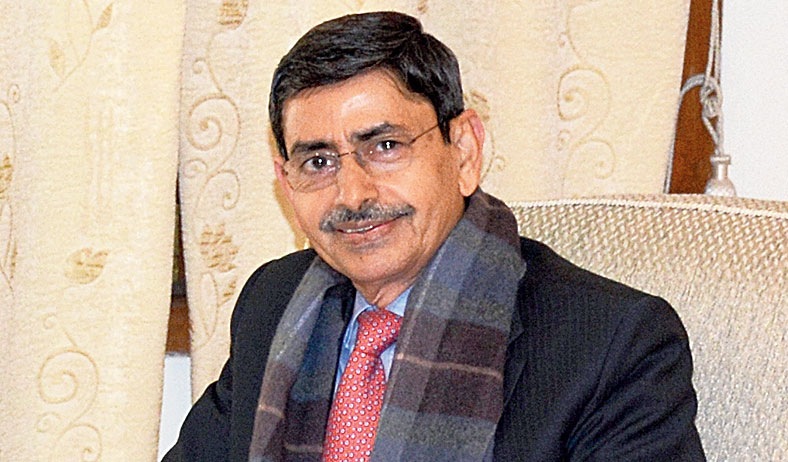Nagaland governor R.N. Ravi on Friday said the negotiations between the government of India and the Naga political groups have been successfully concluded.
Ravi, who is also Centre’s interlocutor, made the announcement for the first time in the state Assembly.
Addressing the first day of the fifth session of the 13th Nagaland Assembly in Kohima, Ravi said the government has conveyed its deepest appreciation to all the stakeholders for exhibiting utmost sincerity, foresightedness and a spirit of understanding in helping create a conducive atmosphere for conclusion of the talks in a positive manner.
Mentioning the meeting of the Joint Legislators’ Forum on Naga Political Issue held on November 13 last year, he appealed to all the stakeholders to continue the spirit of unity and oneness among each other so as to facilitate the final solution to the prolonged Naga political issue, one which is honourable, acceptable and recognises the uniqueness of the history of the Naga people.
The governor lauded the positive role played by the various tribal Hohos, mass-based organisations, the Church and civil society who made every effort to help create a favourable atmosphere so that the negotiations between the various parties could proceed unhindered.
Ravi also appealed to all the state governments and the people of the neighbouring states to show the highest level of understanding and extend all possible cooperation so that the peace process, which has now reached a very critical juncture, concludes in a successful manner in the interest of enduring peace and stability in the entire region.
Ravi said once the commission submits its report along with recommendations, it will be tabled in the Assembly for further deliberations.
On the Citizenship (Amendment) Act, he said there were concerns raised on the possibility of the indigenous people getting demographically overwhelmed and seriously marginalised by people from outside because of the provisions of the Act. He said the state government had brought to the notice of the Centre the special status enjoyed by Nagaland under Article 371A. He added that this, in conjunction with the inner line permit (ILP) regime binder Bengal Eastern Frontier Regulation 1873 that is in force in the state, do not provide any ground for applicability of CAA in the state.
He said the state government had taken a decision on December 9 to extend ILP to the entire district of Dimapur.
This was done in view of the concerns raised in various quarters regarding the grave situation arising in the district because of possible large-scale influx of illegal immigrants and the visible worsening of the law-and-order situation as a result of the entry of anti-social elements and various groups from outside.
Ravi said the protection and safeguarding of the rights and identity of the indigenous people of the state had always remained at the forefront of the government’s concerns.
In this connection, he said the government has taken a decision to create the Register of Indigenous Inhabitants of Nagaland (RIIN), which envisages identification and making a master list of indigenous inhabitants of Nagaland.
He said the creation of RIIN would clearly identify the indigenous people as well as those non-indigenous persons who have permanently settled. This will help proper and effective implementation of the ILP regime in the state, he added.
However, Ravi said, the RIIN exercise raised several issues and concerns from various quarters with regard to its modalities. Hence, the government constituted a commission for studying, examining and advising on all issues related to the exercise, he said.
The formal talks between the Centre and the NSCN (I-M) began in 1997 after a formal ceasefire agreement between the two sides was signed. Both the sides held more that 80 rounds of parleys since signing of the ceasefire.
The Centre had signed a framework agreement with the NSCN (I-M) on August 3, 2015 to seek a final solution.
The Centre had officially extended the scope of talks with Naga National Political Groups (NNPGs) by signing a ‘Deed of Commitment’ in 2017.
However, a home ministry statement in New Delhi on October 31 last year said all stakeholders, including Assam, Manipur and Arunachal Pradesh will be duly consulted and their concerns taken into consideration before any settlement is arrived at with Naga groups.

